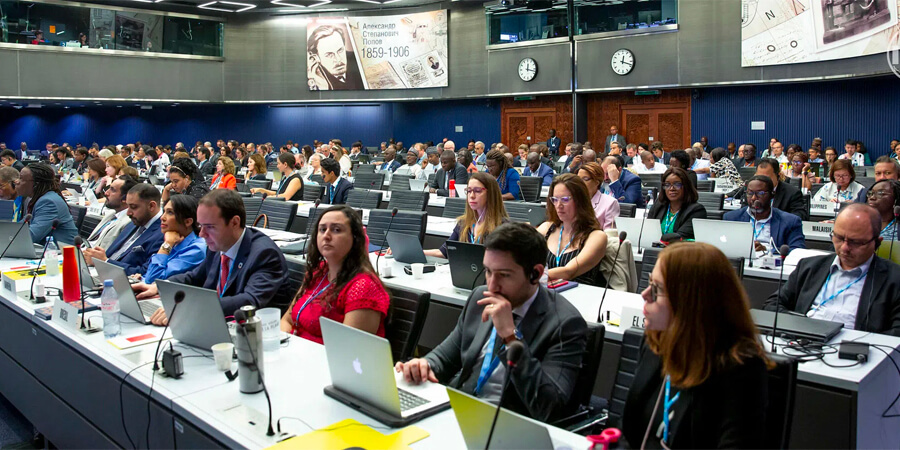The ICT sector, which encompasses information and communication technologies, has long struggled with issues of diversity and inclusion, particularly regarding women. Despite significant advancements in this technology, women remain underrepresented in ICT roles and continue to face numerous challenges. The following will explore the current state of women in the ICT sector, highlighting the lack of diversity, the existing gender gaps and the significant challenges women encounter. Additionally, it will delve into the importance of promoting diversity and inclusion, the potential benefits of a diverse workforce and the strategies and initiatives aimed at empowering women in the ICT industry.
Features
Leading by Example: The ITU's Journey Towards Gender Equality in the Tech Industry
The tech industry has long held a glaring gender disparity, where women are significantly underrepresented. Regrettably, this disparity extends to science and technology professions worldwide, with women accounting for only 30% of the workforce. Historically, the International Telecommunication Union (ITU), a key player in global connectivity and a specialized agency of the United Nations, had been no exception to this global pattern.
MVNOs Expand Their Reach in the Global Market
Undoubtedly, technological progress and rapid development have a significant impact on global economic development. Together, these have created an opportunity for the emergence of new business models in place of others. The Mobile Virtual Network Operator, or “MVNO,” is one of these models. But exactly what is it all about?
Llama 2.0: A Joint Venture by Meta and Microsoft
Recent strides in AI, particularly in the domain of generative AI, have ignited the public's imagination, showcasing the potential to drive extraordinary accomplishments, unlock new economic opportunities and foster meaningful connections among individuals, creators and businesses alike.
5G to 5.5G: The Next Leap in Connectivity and Its Transformative Impact
5.5G, also known as 5G-Advanced, represents a significant technological advancement that has the potential to revolutionize and digitize numerous industries. Building upon the foundations of 5G, this next phase of development brings about substantial enhancements to its capabilities.
Digital Empowerment: Unleashing Economic Growth and Entrepreneurship through E-commerce in Africa
In recent years, digital technologies have revolutionized the way people connect, communicate and conduct business around the world. This digital transformation has not only impacted developed economies but also presents immense opportunities for emerging markets, particularly in Africa. With its vast population and growing internet penetration, Africa has the potential to leverage e-commerce as a powerful tool for economic growth and entrepreneurship.
Scan to Pay: Empowering QR Code Payments in South Africa
As the world's second-largest continent, Africa has experienced a remarkable surge in smartphone adoption, resulting in a substantial increase in the number of smartphone users. This trend has led various industries in African countries to seek innovative ways to engage with the tech-savvy population.
Africa's Telecom Transformation: Can Wholesale and Capacity Businesses Make the Difference?
The telecommunications landscape in Africa has witnessed remarkable growth in recent years, driven by increasing connectivity demands and technological advancements. Behind the scenes, wholesale and capacity businesses have emerged as crucial components of Africa's telecommunications ecosystem. Wholesale and capacity businesses in Africa's telecommunications sector have been instrumental in driving transformative change and closing the perception gap that has long hindered the continent's growth. These businesses have emerged as catalysts for connectivity, innovation and economic empowerment, debunking outdated stereotypes and shaping a new narrative for Africa's telecommunications landscape.
Angola Aims to Enhance Its ICT Infrastructure and Cybersecurity
Angola is dedicated to the reconstruction of its Information and Communications Technology (ICT) infrastructure and the enhancement of its cybersecurity. The government's strategic investments aim to position Angola as a prominent hub for the southern and central regions of Africa. They are achieving this through the development of data centers, satellite infrastructure and optic fiber projects, which not only improve internal connectivity but also link the country to the rest of the continent and the world.
The Brain Knowledge Platform: Mapping the Road Ahead
Decades ago, neuroscientists embarked on the challenging task of treating brain illnesses like Alzheimer’s and Parkinson’s. However, progress has been slow due to the brain's complex nature and limited accessibility for study.














